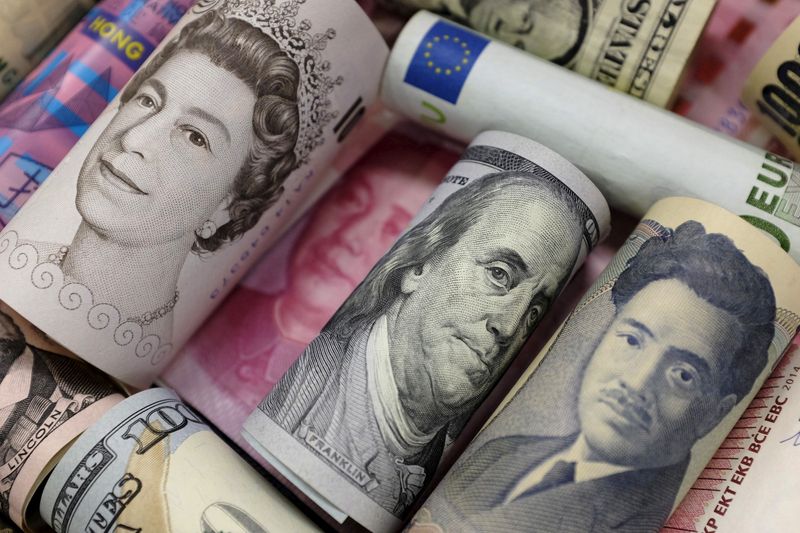By Samuel Indyk
LONDON (Reuters) – The U.S. dollar recouped some data-inspired losses on Wednesday and edged back towards recent peaks, while the euro remained under pressure amid growing recession fears fuelled by a possible energy supply crunch.
Disappointing U.S. services and manufacturing surveys released on Tuesday and a plunge in new home sales saw the dollar take a breather, after a run that pushed the U.S. currency to its strongest level against the euro in two decades.
But Europe has its own growth concerns, stemming from its greater exposure to Russian gas supplies as the region seeks to refuel ahead of winter.
Front-month Dutch gas, the benchmark for Europe, rose again on Wednesday morning as the prospect of a halt to supplies from the Nord Stream 1 pipeline kept investors on edge.
On Friday, Russian state energy firm Gazprom (MCX:GAZP) said Russia will halt natural gas supplies to Europe for three days through Nord Stream 1 due to unscheduled maintenance.
The euro briefly bought $1 on Tuesday, but was back under pressure at $0.9950 in early European trade – barely above Tuesday’s low of $0.99005.
“It’s very difficult for the market to push the euro back above parity,” said Simon Harvey, head of FX analysis at Monex Europe, citing Europe’s energy supply concerns and the prospect of a hawkish Federal Reserve later in the week.
The Kansas City Federal Reserve’s Jackson Hole Symposium kicks off on Thursday with all eyes on a speech from Fed Chair Jerome Powell scheduled on Friday.
The dollar index, which measures its performance against a basket of six currencies, was last up 0.1% at 108.66, within touching distance of July’s two-decade peak of 109.29.
“Market participants remain squarely focused on Friday’s Jackson Hole Symposium as this week’s main event,” said Michael Brown, head of market intelligence at Caxton in London.
“With a hawkish Chair Powell likely on Friday, I’d expect the buck to resume its recent rally before too long,” Brown added, saying he expects the dollar index to breach its July high.
Overnight, Minneapolis Fed Bank President Neel Kashkari repeated the need for more aggressive rate hikes to control inflation.
Meanwhile, cyclical currencies such as the Australian and New Zealand dollars were under pressure amid fears of a global growth slowdown.
The Aussie was down 0.15% at $0.6920 and the kiwi slumped 0.23% to $0.6199.
The British pound hovered above the 2-1/2 year low of $1.1718 reached on Tuesday, while the Japanese yen traded up 0.2% at 136.48 per dollar.



